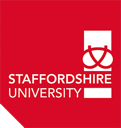About Aeronautical Engineering in Staffordshire University
On our Aeronautical Engineering degree we place special emphasis on flight deck design, particularly the relationship between pilot and modern fly-by-wire computer interfaces. You will learn about propulsion systems, which covers gas turbine engines, rocket engines and internal combustion engines.
Get hands-on experience in our state-of-the-art labs, which include a flight simulator that can simulate Boeing and Airbus aircraft as well as helicopters, and a new computerised wind tunnel.
The computer-aided design (CAD) techniques you’ll learn are the ones used by professional practitioners in the sector, including Finite Element Analysis and Computational Fluid Dynamics. Many of these subjects are taught in group-based projects so you can apply your skills and knowledge to a real aircraft engineering design brief.
Year 1 will introduce you to the fundamentals of technology, mathematics and propulsion systems. Even at this early stage, you will get the chance to be airborne with an opportunity to fly in a glider at a local gliding cub, or fly a commercial Boeing 737 simulator (at a reduced additional cost).
Year 2 will expand your knowledge into areas of aircraft aerodynamics and crash investigation. Between the second and third years, we encourage you to apply for an industrial placement year. These are paid, give you real-world engineering experience, and have been at companies ranging from Airbus Helicopters to GE Engines.
Other specialist modules include flight technology - involving the study of aircraft flight control systems - subsonic and supersonic aerodynamics, crash investigation, flight deck controls, instruments and displays, navigation systems, material properties and selection, and computer-based design, analysis and simulation.
In Year 3 you will study advanced aerodynamics and flight technology, which will prepare you for your final project. Your studies culminate with the GradEX graduate exhibition, where you will be able to exhibit your work to industry, VIPs and the public.
Entry requirements
To apply for an undergraduate (bachelors) degree you need one of the following qualifications:
- Higher Secondary Certificate (HSC) / Standard 12/ XII with a minimum score of 65% overall
- International Baccalaureate (IB) Diploma with 28 points overall
- Successful completion of a relevant International Foundation Year from a recognised UK Institution
- For A-Level requirements, please see the ‘entry requirements’ section on the relevant course page
